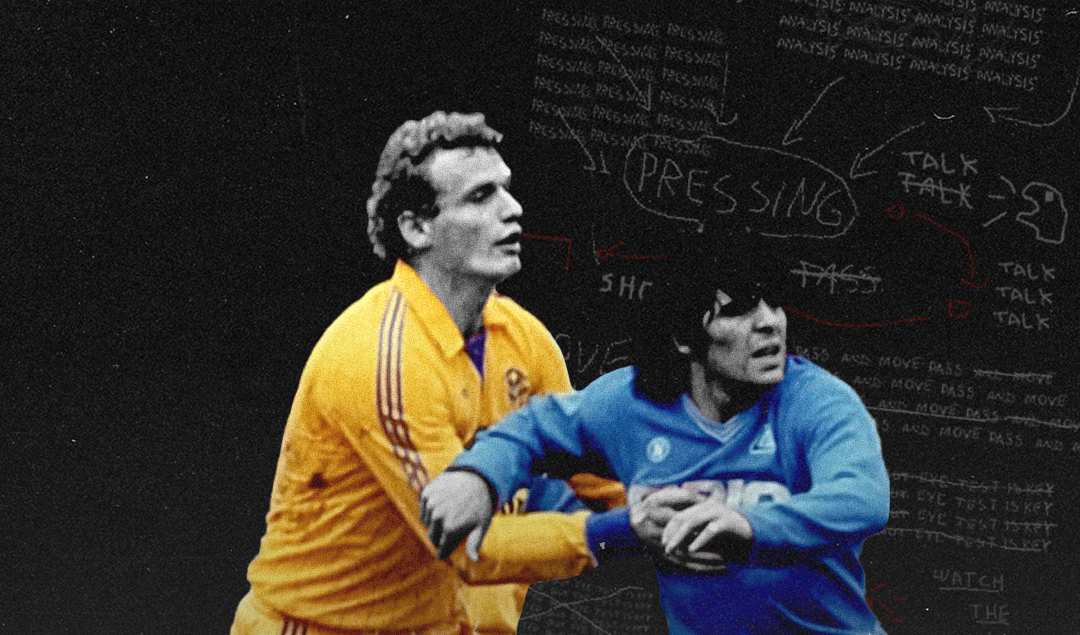How a Betting Scandal Saw Hellas Verona Win Their Only Scudetto
Today, Hellas Verona find themselves in the relegation zone, one point away from safety. They have lost three of their last four, and they need to get positive results against Empoli and Milan as they look to avoid dropping down to the second tier for the first time since 2018/19. However, in 1984/85, they were champions of Serie A, completing the singular greatest triumph since the club was founded in 1903 by a group of high school champions. Here is the story of how a betting scandal saw Hellas Verona win the Scudetto.
In 1946, Italy introduced the Totocalcio, a state-run pool for citizens to bet on football and the only form of legalized football betting in the country until the late 1990s. For fans to win, they needed to correctly pick the outcome of 12 games, making it virtually impossible for the pool to be fixed since so many matches were involved. As such, the only way to bet on a single match or the winners of the Coppa Italia or Serie A was with the help of illegal bookmakers.
In 1979, restaurant owner Alvaro Trinca and his supplier Massimo Cruciani hatched a plan: they would speak to Lazio players, who would frequent Trinca’s restaurant, and get them to fix matches in exchange for a cut of the money. However, many of these games did not go as planned, with Trinca and Cruciani losing over 100 million lire by February 1980 (worth $400,000 in 2022).
Trinca and Cruciani filed a report with Rome’s Public Prosecutor with the names of 27 players and 13 clubs across Serie A and Serie B. Both were arrested in addition to 13 players and Milan president Felice Colombo, although all of them were acquitted. As a result, Milan and Lazio were relegated to the second tier whilst several players faced lengthy bans, including Paolo Rossi, who was suspended for three years (later reduced to two) and who starred in Italy’s 1982 World Cup triumph.
War Heroes, Wheeler-Dealers, Fake Sheikhs and Consulting Detectives on the South Coast of England
Following the scandal, the Italian FA decided to try the novel approach of randomly assigning referees to games. Up until then, match officials got their assignments from a special commission of referees. With the rampant corruption of the Italian league, it was decided that this commission was corruptible and the new model was approved.
In the midst of this turmoil in Italy, Hellas Verona had assembled a squad of experienced heads and upcoming stars. The additions of midfielder Hans-Peter Briegel and striker Preben Elkjær complemented the talents of Pietro Fanna, Antonio Di Gennaro and Giuseppe Galderisi. No one could expect how good Hellas would be, with one of the season’s highlights being Elkjær scoring a goal in a win against Juventus after having lost a boot in a tackle just outside the box.
Having won the 1981/82 Serie B title — their sole title up until that date apart from the 1956/57 Serie B title — Hellas Verona quickly settled into the top-flight, finishing fourth and qualifying for the UEFA Cup before following that up with an eighth-place finish. However, in 1984/85, they achieved one of the most surprising results in football history in what would prove to be a historic campaign for the underdogs of Calcio.
Each of Juventus, Inter and Milan finished outside the top two, with Sampdoria finishing fourth and Torino claiming second place. The Granata would lose out on the league title by four points to Hellas Verona, who would win 15, draw 13 and lose two matches all season, scoring 42 goals and conceding 19. In a league featuring the likes of Michel Platini, Diego Maradona, Karl-Heinz Rumenigge and Socrates, it was Hellas Verona who came away with the Scudetto.
Next year, the random referee assignment model was scrapped and Juventus won the league, with Hellas coming in tenth and losing to defending champions Juventus in the second round of the European Cup. The choices of the referees went back in the hands of the designatori arbitrali. Two decades later, another major scandal in Italian football revealed that certain clubs had been illegally influencing the referee selection process in an attempt to ensure that certain referees were assigned to their matches.
By: Eduard Holdis / @He_Ftbl
Featured Image: Stefano Montesi – Corbis / Corbis Sport
